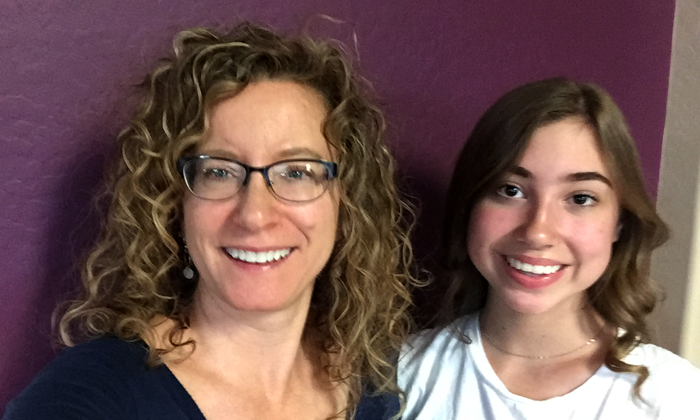Recently, at a child’s birthday party, a man I recognized as Patrick from previous gatherings came up to me. Nodding at my 14-year-old daughter, who was dashing outside, he said, “Soooo, her parents are pretty trashy people, huh?”
I stared at him, shocked. I looked down at my shirt. Was I exposing more skin than the typical Arizonian? Had I worn too much makeup? Had my daughter worn too much makeup? “Trashy” is such a vulgar word to describe people.
And then I got it. I felt sweaty and a pit opened in my stomach. Patrick was referring to my daughter’s biological parents, not to my husband and me. Patrick knew we had adopted Abigail at birth. We had always been open about our choice in adopting.
“No, they are not,” I sputtered, surprised I had managed to say anything. “They are not. Not at all. Why would you think that?” My husband and I rarely received negative comments relating to adoption, especially from friends—or friends of friends. Many within our circle of acquaintances had also adopted, and I had generally considered myself to be surrounded by socially aware, sensitive, and bright people who were, if nothing else, too polite to make ignorant, derogatory statements. And that is what Patrick’s question really was—a statement.
I appraised Patrick, like a feral cat. I was not sure whether to stalk away or jump in with claws. He shrugged, “Well, you know, to give her up like that, to not be able to care for your own kid….”
Instead of recognizing the sacrifice Abigail’s biological parents went through, this man was twisting their actions to taint them. Amidst the brightly lit room filled with music, balloons, and joyful laughter, I felt my hackles rise—but managed to avoid hissing angry words. I needed to address Patrick’s comments calmly.
Instead I blurted out, “Recognizing you can’t take care of your child is courageous, and, besides, they did take care of her by giving her the best home possible. That’s not trashy. And I don’t think of people as trash.” I went on to explain how Abigail’s biological parents were thoughtful, hardworking people, and that we were still in contact. Despite my factual information, my delivery was not eloquent.
Patrick, however, listened, which I recognize is hard when dealing with emotional situations. What seemed to impress him the most was that I was willing to defend Abigail’s biological parents. Days later, weeks later, when I thought about the incident I am glad I stood my ground, though the words still replayed in my mental tape recorder. Trashy means unworthy, subpar. Abigail’s biological parents couldn’t be further than this. When I think about how they admitted they couldn’t be together, couldn’t take care of themselves, let alone a child, I recognize two people who had superhuman courage. They were willing to sacrifice their hearts in order to provide a better life for their child. Subpar? Their choice to place Abigail for adoption was the antithesis of subpar.
Abigail’s biological parents have made some choices that have spun them on a merry-go-round of difficulties—but who hasn’t? Does a hard life or certain choices make someone trashy? My husband had been divorced twice before I met him. From the outset, he would seem “poor husband material,” but his choices have actually made him committed to being the best partner possible; he of all people knows how much love and work a marriage takes.
In perseverating over this situation, I realized Patrick’s question also haunted me because, if people think Abigail’s biological parents are “trashy,” by extension, do they think my daughter is trashy? And if people think of her biological parents as trashy, could Abigail pick up on this, seeing herself as sleazy, counterfeit? Would she think “trashiness” could be inherited, like her chocolate-colored eyes? Would she see herself as trash, something to be thrown away, something not worthy?
That is why all this mattered so intensely that moment at the party and why it still matters to me. That is why I am relieved that I had the courage to talk with Patrick, and grateful that he listened. Language does affect reality, and I want my daughter’s reality to be one that recognizes the worth and dignity of her biological parents—and always the worth and dignity of herself.



